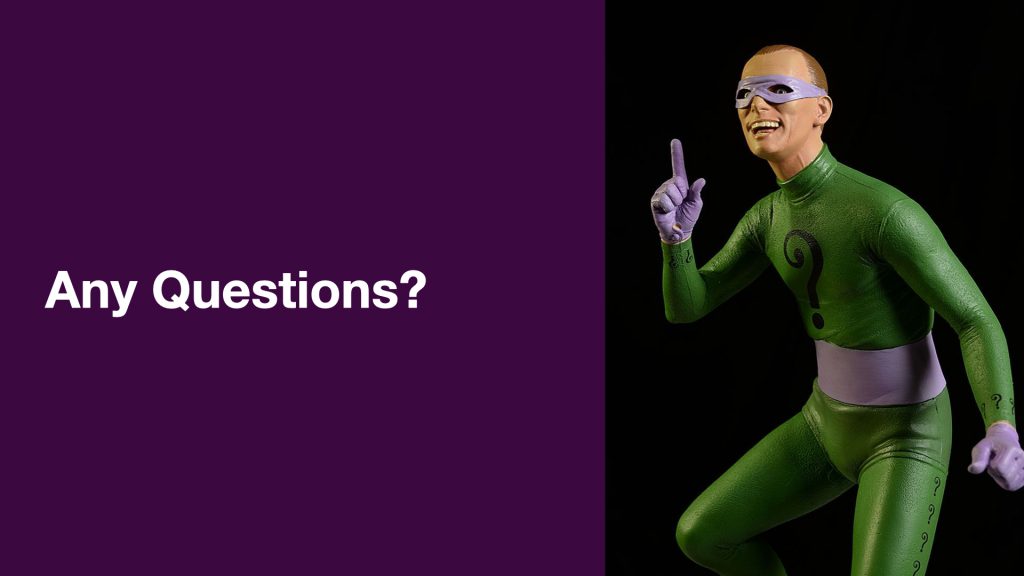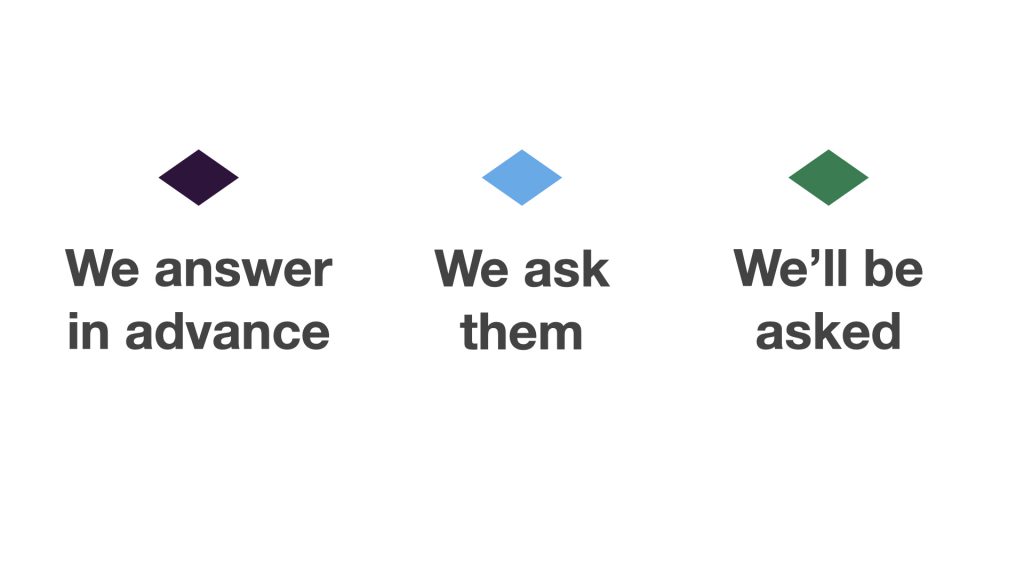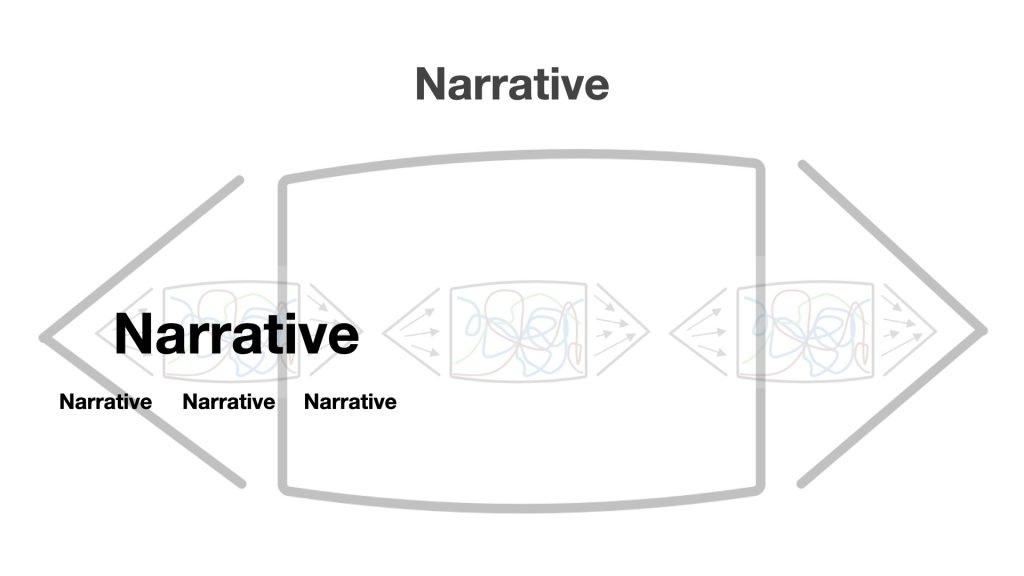Imagine yourself telling a story. Any story you like.
Picture where you are and what’s happening.
Perhaps you’re in a small cabin, writing that novel you always had in your mind; working diligently in the writers’ room for a new TV show; crafting the next breakout Broadway hit; or standing on stage as you share an amusing anecdote.
Whenever we’re creating and crafting a story, there are lots of questions an audience may have that the creator – the storycrafter – has to consider.
If you think about it, the storycrafter has to surface and answer a lot of these questions in advance so the audience can make sense of what’s going on.
Here are just a few:
Why is she doing that?
How did they end up there?
Why did this character suddenly appear?
Who is going to save him?!
As Workshop Creators we can take this same mindset – after all, designing and delivering a workshop is essentially about crafting a story. And just like in other forms of storytelling, workshop questions are everywhere.

Questions lead us to:
- Stories (yes, the infinite loop!)
- Talking points
- Interactive activities
- Q&A sessions
- Assessments
And so much more…
Surfacing the questions
What are the questions we need as Workshop Creators?
Typically when thinking about this, we’ll surface content-related questions first:
- How do we introduce the topic?
- What about that element?
- What about doing this activity?
- Which conversations do we want to encourage?
- What do we want people to avoid?
These are just a few – there are lots of questions!
Sometimes these questions will lead to a straight True or False answer; a fact of some kind.
More often though, there are multiple, subjective responses. And these responses tend to lead to more questions… and more responses…and more questions.
This isn’t surprising, because in a workshop we’re exploring and navigating the unknown; working through the challenge space – whatever that may be for the topic we’re focused on.
This is exciting, but it can also feel overwhelming – one branch to another, to another, to another – an intertwining web of questions, answers, and ideas.
Crafting and delivering this can be challenging. Let’s make it easier on ourselves.
3 types of questions
We can categorize these questions into 3 groups:

Let’s take these one by one – starting with the most straightforward.
The middle group is fairly obvious; questions we’ll ask our group when we’re delivering the workshop. We’ll probably have a few of these primed and ready to go.
The third group looks simple, but is a little more complex than it appears; these are questions we’ll be asked, but we may also want to prime, prompt, or tease these questions out. How we do this leads us to the most complex group – those we answer in advance.
These are questions we’re answering through our design, content, or activities. We’re weaving the answers and quite possibly also the questions into the materials and the experience. This is the art and the science working in tandem – and it’s where the storyteller mindset shows up.
We want to answer questions in advance to help the audience make sense of what’s going on, but also to level-set, remove objections, increase comfort, and sometimes just to save time.
We don’t want to answer too many in advance or there’s nothing to explore; yet leave it all open and our audience will feel the dip in the learning and narrative curves too abruptly.
This first group of questions – while delicate to balance – can be hugely valuable to us as Workshop Creators.
Weaving the thread
Once we’ve categorized our questions, we can then start applying into our workshop structure, and the wider narrative for our story.

A question could sit within a small part of the narrative of one of our many workshop chunks. It could form a chunk itself, or lead from one concept to another. A question could form a pillar of our workshop, lead directly to a learning outcome, or even be the crux of the entire workshop.
And just like any other storyteller, part of the magic for the Workshop Creator is in layering, priming, and sprinkling these questions throughout the story to allow for tension, release, challenges, and resolution.
Because that’s part of what makes workshops… work.
To learn more about questions, story, narrative, and dozens of other workshop creation concepts, join us as a Workshop Creator